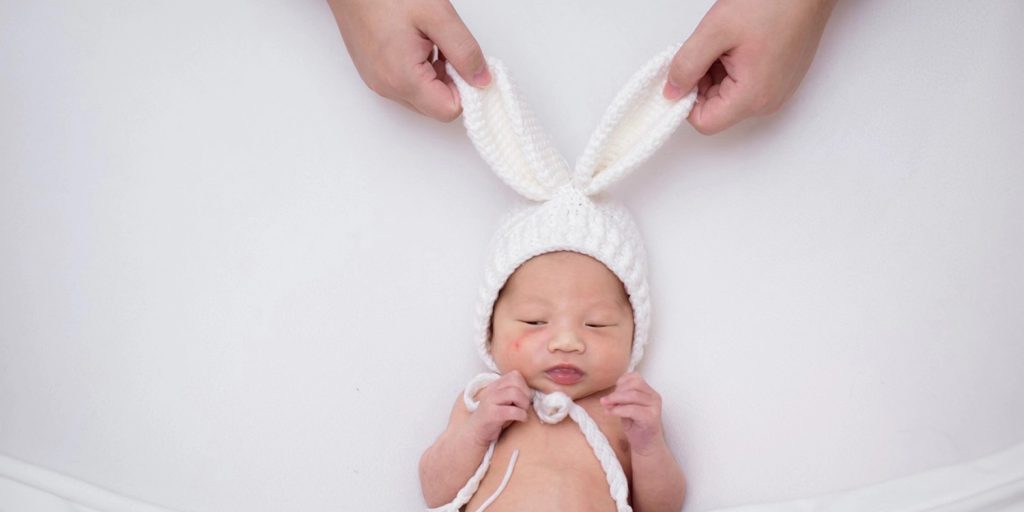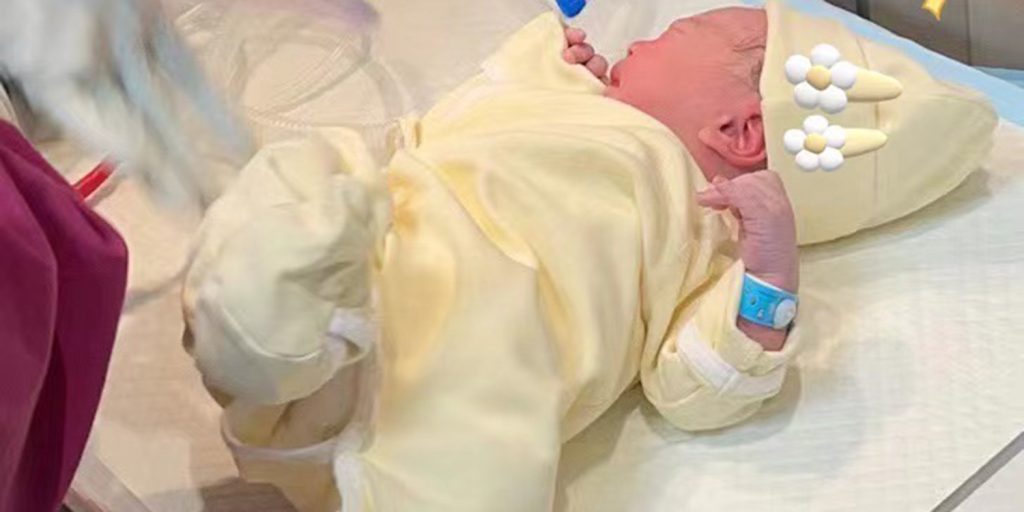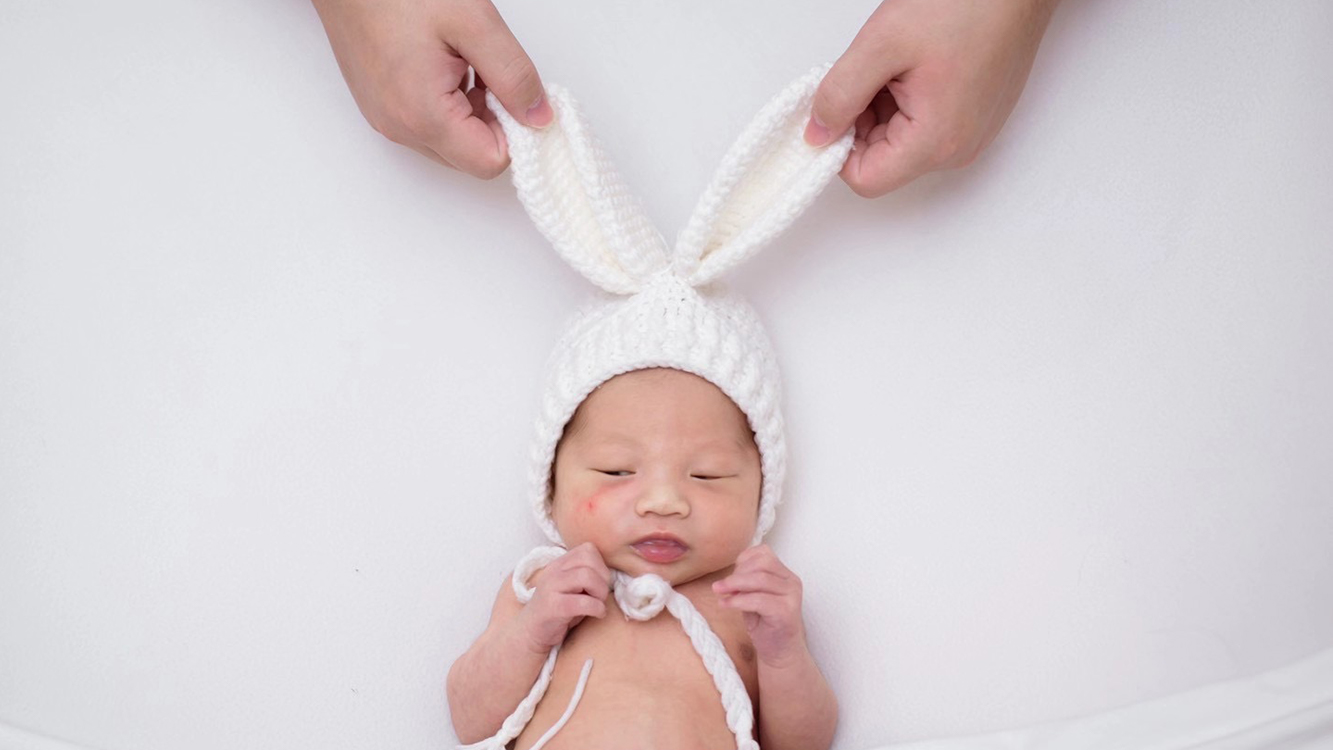More LGBT couples in China is using surrogacy to have a baby. What are the challenges these couples face, and what future do their children face?

As the furniture is moved into their new home, Jia Liang and Li Fei look at their sleeping baby in his cot and think it’s all a dream.
Not long ago they were waiting anxiously outside the maternity ward of a Georgian hospital until the loud cries of the baby brought the 445-day surrogacy journey to a happy ending.
From 2016 to 2017, Jia Liang and Li Fei made four long flights from Beijing to Almaty airport and then on to Tbilisi airport, but this was only a small part of their journey to find surrogacy services.
Their journey took them nearly 80,000 miles, cost them nearly 160,000 lari (the Georgian currency), which equates to around £40,000, and involved countless days of waiting and anxiety, all in the hope of realizing their dream of having a family of three.
In China, more and more gay people like Jia Liang and Li Fei are spending huge amounts of money and travelling thousands of miles overseas to find surrogacy services to pursue this dream.
According to a 2015 survey by Blued, China’s largest gay dating platform, 48% of people are considering going overseas for surrogacy services in the future. This journey is what many of them call “following their dreams”.
Surrogacy is a form of assisted reproduction in which a fertile woman uses assisted human reproduction techniques to carry embryos for another family until the baby is born.
Surrogacy is needed for a variety of reasons, including inability or unsuitability to conceive or give birth naturally, gay couples or single men or women who want children, women who want surrogacy as a personal lifestyle choice, and so on.
Jia Liang and Li Fei met in the winter of 2013 in Beijing when they also had the experience of studying abroad at an offline exchange for international students. They met offline and established their relationship in just one week.
“I had met a lot of people before, but they weren’t a good match, but after I met him, I felt it was time to settle down.” Li remembered.
So, it didn’t take long for the two people who had longed for stability to move into the house they had rented together and start a sweet life together. That year Jia Liang was 29 and Li Fei was 35.
“The most important thing is that the parents want you to let us have grandchildren sooner, which is the greatest Chinese parents respect piety.”
The parents’ desire to have a grandchild made Jia Liang unsure of how to respond. He and Li Fei had also considered adopting a baby, but their status as gay couples did not qualify them for adoption.
But the happy life still experienced the test of reality. So as Jia Liang got older, his parents became more and more anxious about his marriage, either urging him to bring his girlfriend home over the phone or sending Jia Liang pictures of his relatives’ new-born babies on his mobile phone when he had time.

“In the countryside, you must have a male child in the family to continue the offspring, but now this son can’t get married or have children. If they know this, they might not alive.” Jia Liang said with a bitter smile.
Such pressure is not only reflected in Jia Liang and Li Fei. Professor Wei Wei of sociology at East China Normal University, one of the few Chinese scholars to study homosexuality, found after actually studying several homosexual cases in China that the barriers to acceptance of the LGBT community differed between China and the West.
“Unlike the barriers to LGBT acceptance in the West, which are mainly due to religious teachings, conservative social and cultural expectations are the biggest source of pressure on the LGBT community in China,”Wei said.“ This is because Chinese society and culture has inherited thousands of years of ideological traditions that marriage and having children and continuing the family bloodline are responsibilities and obligations that a new family must take on. This makes it difficult for the Chinese gay community to identify themselves as gay to their parents.”
And because China does not allow gay couples to marry or adopt children, many people must suppress their true sexuality and organise ‘fake’ marriages disguised as heterosexuals in order to alleviate this pressure. Or gay men and lesbians sign paper marriages to cover for each other in front of their families.
The professor replied: “More than a third of the respondents in my study were already married or had entered into paper marriages…”
Unwilling to go down either route, Jia and Li considered surrogacy. The reason was that Li Fei had seen someone in a Chinese gay WeChat group share their experiences of the surrogacy process in the US, and both felt hopeful when they looked at the photos of a family of three smiling brightly. With a baby to explain to his parents, they could find some comfort in looking at baby.
Unlike the family pressure Jia faced, Li Fei’s parents were both university professors, and his enlightened family environment allowed him to reveal his homosexuality to his parents at an early age, and the fact that they knew he had a same-sex partner allayed their fears that their son would end up alone. So, when it came to choosing who would provide the sperm, Li Fei offered Jia to be the biological father of their first baby.
So, when the surrogacy process came to an end, Jia Liang took Li Fei back to his home in rural Hebei and revealed his homosexuality to his parents.
At first, his father almost fainted when he heard that his son was gay, and his mother was in tears. When they calmed down, Jia Liang took out the ultrasound pictures sent by the agency and announced that they had a grandson, much to the surprise of his parents.
“How did you get the baby? Don’t you lie to us, is it really yours?” Just as Jia and Li had expected, the parents, who knew they were having a grandson, turned their attention from his sexuality directly to the baby in the womb of his mother, who was far away.
A few weeks later the parents, who had never been abroad before, flew to Georgia with Jia and Li to witness the birth of their grandson.
Jia Liang said: “The moment the baby was carried out by the nurse, everyone cried and my mother shook the mother’s hand and thanked her repeatedly.”

When Jia and Li began their journey in 2017, they did a lot of research, and since surrogacy is illegal in China, they got most of their information by reading the experiences shared by others on forums, joining WeChat groups with the same surrogacy needs, and the rest by advertising in various forums or offline platforms.
A simple Chinese search on Google for the term “surrogacy agent” returned over one million results, which clearly demonstrates the scale of the demand, with surrogacy agencies from the US topping the search results.
The head of the US surrogacy agency even said that more and more Chinese clients have been approaching them for surrogacy services since 2013, so they have started creating Chinese websites and hiring Mandarin-speaking staff.
In addition to the US, Canada, Ukraine and Thailand are all popular surrogacy options for Chinese clients. However, as not many countries allow homosexuals to legally perform commercial surrogacy, Li and Jia settled on Georgia, which is a third of the price of surrogacy services in the US.
Tina, who is in charge of arranging Jia and Li’s dream trip to Georgia, revealed that gay couples make up a large part of their clients. The company has links with many of the LGBT communities active in China and has a mature chain of contacts at every stage of a client’s surrogacy search.
A driver will take the client directly to the hotel from the time the plane arrives, a translator will accompany the client at the hospital, communication with the egg donor, and the surrogate mother will be kept informed of the results of the later tests.
This allowed Li Fei and Jia Liang to start selecting the egg mother and surrogate before they even flew to Georgia for the first time, based on the photos and personal information given by the agency.
This is because one of the most important points in surrogacy is the egg donor and the surrogate mother. After the gay client has been selected from a database of photos, age, race and education of the egg donor, they go to a designated hospital to provide sperm, the eggs are technically fertilised and the embryos are transferred into the womb of the surrogate mother. The baby born through surrogacy is biologically unrelated to the surrogate mother.
Although the agency promised Li and Jia that if they paid the money, they would eventually have a baby. However, the whole process went through ups and downs that Li and Jia did not expect before their dream journey began.
For example, while waiting for the embryo transfer, the original mother had to change the surrogate mother because the thickness of her endometrium was not up to standard, which took 3-4 months; or the embryos were transferred to the mother and failed twice in a row; or after the third successful embryo transfer, the ultrasound examination of the mother at the 12th week revealed that one of the twins had stopped the heartbeat and the other one had a weak heartbeat. The heartbeat is a little weak.
“It was really hard, and now I can’t even think back, so in the end, after our son was born, my father named the baby Anan, hoping that he would be safe and sound for the rest of his life.” Jia Liang said.

Anan is now four years old and is at her most playful and active age. Although their parents have offered to help with her care, Jia and Li have both refused.
They were determined to take care of Anan themselves, so Jia Liang, who had never been in the kitchen before, began to learn to cook in a very earnest way and is now a good chef, while Li Fei draws and sings with Anan.
But something happened that made Li and Jia start to worry about the future of their baby. Once they were taking Ann out to play and in the lift in the neighbourhood a boy of about 5 or 6 years old looked at Ann and asked his grandmother, “Grandma, is he the one who has two fathers?”
The boy’s grandmother was instantly embarrassed and tried to tell the boy to stop talking. But the boy still wouldn’t stop his questioning. Li Fei and Jia Liang didn’t say anything, they just silently hugged Anan.
“That little boy is so small, how can he know so much, his family must have discussed it many times in private, that’s why he knows about it. “
This incident has made the two fathers worry about whether their children will be looked at differently in the future when they enter school because of themselves.
So, when Anan was in kindergarten, Li Fei’s parents were the ones to receive him when the teacher came to visit him at home. As it is very normal in China for grandparents to take care of the third generation when parents are busy or divorced, the kindergarten teachers did not even notice that the child came from a family with same-sex parents.
Although they knew that this would help Anan to integrate better into her surroundings, Jia and Li felt bad about it. They reassured each other that it was all for the good of the baby.
Li Fei said, “Although Anan doesn’t have a mother, he only has two fathers, so now we just want to give him more love and make him feel that I am as happy as other children, and that’s enough.”
